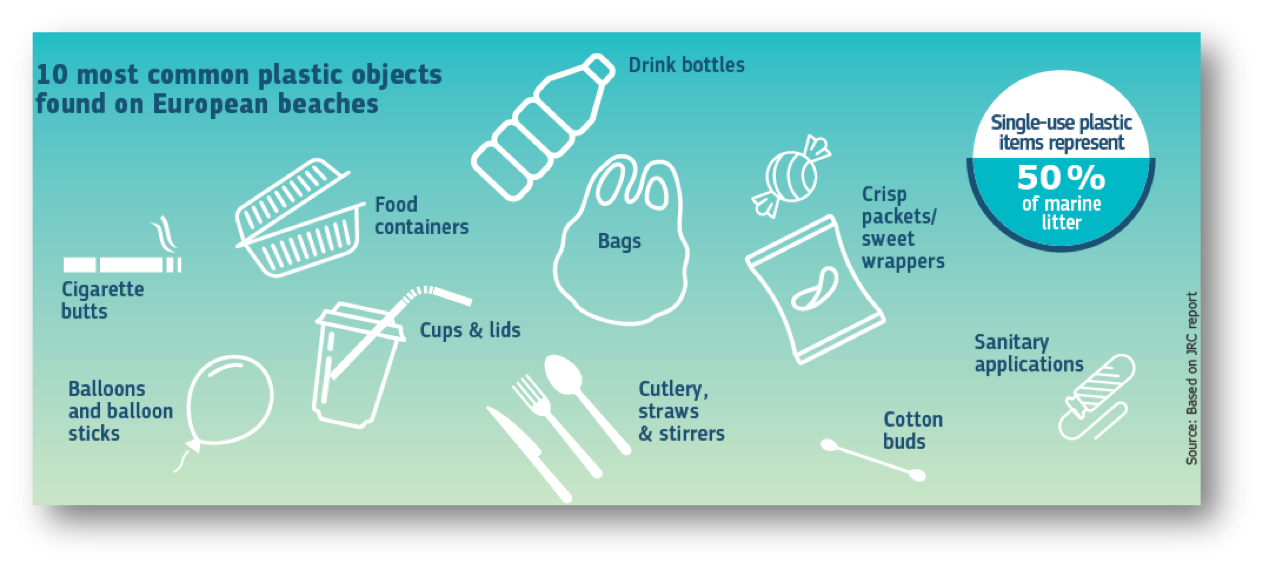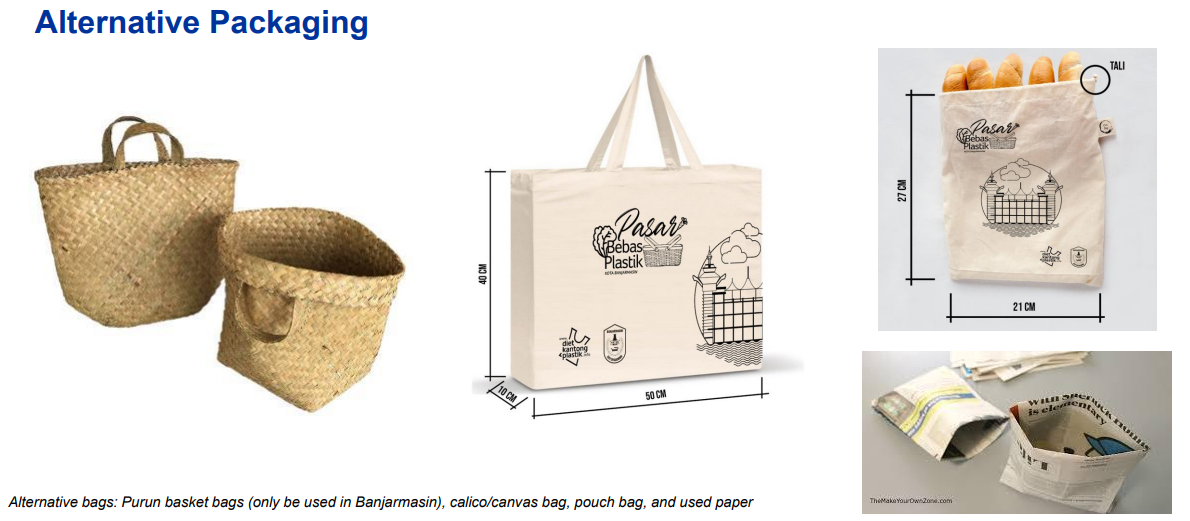International workshop discussed transition away from single-use plastics towards plastic waste prevention
 |
| Source: Joint Research Centre, European Commission (2017) |
The workshop took place as a hybrid seminar at the Goethe Institute Hanoi and online, aimed at exchanging experiences and initiatives between Vietnam and the European Union on eco-friendly substitutes for plastics. In addition, the workshop was an opportunity to discuss policy options that could boost the development of such alternatives.
The workshop included the participation of Nguyen Trung Thang, vice director of ISPONRE under the Minister of Natural Resources and Environment, Rui Ludovino, first counsellor of Climate Action, Environment, Employment, and Social Policies at the Delegation of the EU to Vietnam, as well as international organisations, private companies, and the press.
During his opening speech, vice director Thang emphasised the urgent need to reduce plastic waste saying, “With the current plastic consumption and management, nearly 12 billion tons of plastic waste will be discharged globally into the environment, including rivers and oceans, spreading environmental pollution further. In Vietnam, only 6 per cent of plastic waste is recycled properly.”
Thang continued, “The clean up of mismanaged plastic waste will be challenging and costly since it is fragmented into small particles.”
According to counsellor Ludovino, the pandemic has intensified the strain on plastic waste management.
“Since the pandemic has upended life, Vietnam sees an increase in the usage of single-use plastic products from protective equipment and sanitising, as well as in food delivery, takeaway containers, and e-commerce, which is likely to contribute to the amount of plastic waste in landfills and the ocean after they are discarded,” Ludovino said.
To alleviate the plastic stress, speakers from the Deutsche Gesellschaft für Internationale Zusammenarbeit (GIZ) and the IVL Swedish Environmental Research Institute shared their experiences on developing and implementing solutions for reducing and replacing single-use plastic items.
Among these, Elena Rabbow from GIZ discussed practical cases from pilot ventures of the ‘Rethinking Plastics – Circular Economy Solutions to Marine Litter’ project in East and Southeast Asia. One of these attempts to reduce plastic waste in traditional markets in two cities in Indonesia is targeting micro traders and consumers.
“The project team in Indonesia combined traditional and new approaches to switch from single-use to reusable bags, straws, cutlery, and food containers on land and floating markets. They cooperated with the city mayors and public authorities to provide training for market vendors, who would then encourage shoppers to bring their own bags and containers and avoid using single-use plastic items,” Rabbow said.
“By doing this, there will be a shift in the behaviour of vendors and consumers about the replacement of commonly-used plastics goods, not because they are no longer available but because they are not truly needed.”
 |
| Photo: Indonesia Plastic Bag Diet |
Mathias Gustavsson, researcher at the IVL, emphasised several critical factors to consider.
“Single-use plastic solutions should be tailored to each country. By integrating local experiences, we can enhance the efficacy of those solutions.”
He added, “Alternatives to single-use plastic products also have their drawbacks. For example, biodegradable plastic is costly and difficult to recycle. Concerns with paper and other natural items include water barriers, durability, and hygiene. Therefore, it is crucial to consider the trade-offs of these alternatives before using them.”
Wilfried Eckstein, director of the Goethe Institute, endorsed the joint effort of relevant parties.
“There are numerous targets to achieve and things to replace. There is also a need for improved regulation,” said Eckstein, adding that the professional exchange between Vietnam and EU member states would provide an opportunity to reform and enhance the situation.
Fanny Quertamp, senior advisor for Vietnam at Expertise France shared, “We are now cooperating with the Ministry of Industry and Trade and the Vietnam Association of Standards and Quality to evaluate the existing definition and criteria for eco-friendly products made from recycled plastics and to examine standards and ecolabels in the Vietnamese setting.”
The workshop is part of the Plastic Alliance pilot project under the Rethinking Plastics project, conducted by ISPONRE in partnership with the Hanoi Department of Industry and Trade to develop the Alliance of Supermarkets that aims to reduce the consumption of single-use plastic bags in Vietnam with the participation of 16 retailers, VIR reported.
The international cooperation project “Rethinking Plastics – Circular Economy Solutions to Marine Litter”, funded by the EU and the German government and implemented by GIZ and Expertise France, seeks to enhance the exchange between East and Southeast Asia and Europe on sustainable consumption and production. The pilot project conducted by ISPONRE is one of many activities on single-use plastics in Vietnam. More details can be found on rethinkingplastics.eu.
What the stars mean:
★ Poor ★ ★ Promising ★★★ Good ★★★★ Very good ★★★★★ Exceptional
Related Contents
Latest News
More News
- Bac Ai Pumped Storage Hydropower Plant to enter peak construction phase (January 27, 2026 | 08:00)
- ASEAN could scale up sustainable aviation fuel by 2050 (January 24, 2026 | 10:19)
- 64,000 hectares of sea allocated for offshore wind surveys (January 22, 2026 | 20:23)
- EVN secures financing for Quang Trach II LNG power plant (January 17, 2026 | 15:55)
- PC1 teams up with DENZAI on regional wind projects (January 16, 2026 | 21:18)
- Innovation and ESG practices drive green transition in the digital era (January 16, 2026 | 16:51)
- Bac Ai hydropower works stay on track despite holiday period (January 16, 2026 | 16:19)
- Fugro extends MoU with PTSC G&S to support offshore wind growth (January 14, 2026 | 15:59)
- Pacifico Energy starts commercial operations at Sunpro Wind Farm in Mekong Delta (January 12, 2026 | 14:01)
- Honda launches electric two-wheeler, expands charging infrastructure (January 12, 2026 | 14:00)

 Tag:
Tag:




















 Mobile Version
Mobile Version